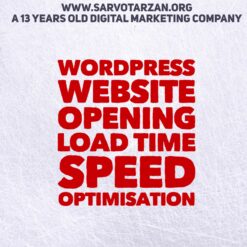-
×
 Do your Own SEO for FREE - DIY SEO Service - Get Backlinks from HIGH DA Websites (DA 50+ to DA 90+) for FREE from a List of 250+ HIGH DA Websites (DA 50+ to DA 90+)
₹ 499.00
Do your Own SEO for FREE - DIY SEO Service - Get Backlinks from HIGH DA Websites (DA 50+ to DA 90+) for FREE from a List of 250+ HIGH DA Websites (DA 50+ to DA 90+)
₹ 499.00 -
×
 Buy SEO Keywords Research for Website
₹ 99.00
Buy SEO Keywords Research for Website
₹ 99.00 -
×
 Buy On Page SEO Service
₹ 199.00
Buy On Page SEO Service
₹ 199.00 -
×
 Buy SEO Optimised E-Commerce Product Description with Meta Info, Slug, Product Short Info & Product Tags
₹ 249.00
Buy SEO Optimised E-Commerce Product Description with Meta Info, Slug, Product Short Info & Product Tags
₹ 249.00 -
×
 Buy Website Optimisation Service of Website Speed, Page Speed Score, Y-Slow Score, Fully Loaded Time
₹ 499.00
Buy Website Optimisation Service of Website Speed, Page Speed Score, Y-Slow Score, Fully Loaded Time
₹ 499.00
SEO
The Importance of Blogging for SEO
Search Engine Optimization (SEO) is a critical component of digital marketing that determines how visible a website is on search engine results pages (SERPs). In the ever-evolving landscape of SEO, blogging has emerged as one of the most effective tools to enhance a website’s visibility, traffic, and credibility. This article explores the importance of blogging for SEO and why it should be an integral part of any digital marketing strategy.
1. Increased Website Traffic
Blogging provides an opportunity to target a wide range of keywords and topics that your audience is actively searching for. Every blog post represents a new page on your website that can rank on search engines, offering multiple entry points for visitors. By consistently publishing valuable and relevant content, you can attract more organic traffic to your site, creating opportunities for engagement and conversions.
For instance, if a company sells eco-friendly products, writing blog posts about topics like “10 Tips for Sustainable Living” or “The Benefits of Using Recyclable Materials” can attract users searching for related information. These users might not only read the blog but also explore the website’s products and services.
2. Targeting Long-Tail Keywords
While broad, high-competition keywords are important, long-tail keywords play a significant role in capturing specific search intent. Blogs allow you to naturally incorporate long-tail keywords, which often have less competition and higher conversion rates. For example, instead of targeting “running shoes,” a blog post might focus on “best running shoes for marathon training.”
Long-tail keywords also align with voice search, which is becoming increasingly prevalent. People using voice-enabled devices often phrase their queries as questions or complete sentences, and blogs can address these queries directly.
3. Fresh Content Signals to Search Engines
Search engines prioritize websites that regularly update their content, considering them more relevant and authoritative. Publishing new blog posts signals to search engines that your website is active and continuously providing value to users. This can improve your site’s crawl frequency, ensuring that search engines index your latest updates.
Moreover, updating older blog posts with fresh data or insights can also boost their rankings, reinforcing the idea that your website is a reliable source of current information.
4. Building Internal Links
Internal linking is a vital aspect of SEO that involves connecting one page of your website to another. Blogs provide an excellent platform for creating internal links, guiding users to other relevant pages or posts. For example, a blog about “Benefits of Yoga” can link to product pages selling yoga mats or an earlier post about “Beginner Yoga Poses.”
These internal links improve the user experience by helping visitors find additional content, which increases the time they spend on your site. They also help search engines understand the structure of your website and the relationships between different pages, enhancing overall site authority.
5. Generating Backlinks
Backlinks, or inbound links from other websites, are a key ranking factor for SEO. High-quality blog content is more likely to be shared and referenced by others, earning valuable backlinks. For instance, an in-depth blog post featuring original research, expert insights, or detailed guides can attract links from authoritative sources within your industry.
Search engines view backlinks as endorsements, and websites with more high-quality backlinks tend to rank higher on SERPs. Blogging provides a platform to create link-worthy content that other websites find valuable enough to reference.
6. Establishing Authority and Expertise
A well-maintained blog showcases your expertise in your industry or niche. By addressing common questions, providing solutions, and sharing insights, you position your brand as a trusted authority. This not only builds credibility with your audience but also enhances your site’s E-E-A-T (Experience, Expertise, Authoritativeness, and Trustworthiness) score, a critical metric in Google’s ranking algorithm.
For example, a financial services company that regularly publishes blogs about budgeting tips, investment strategies, or market trends demonstrates its expertise, encouraging users to rely on its advice and services.
7. Enhanced User Engagement
Blogs can significantly improve user engagement by providing content that resonates with your audience. Through comments, shares, and social media interactions, blogs encourage dialogue and foster a sense of community around your brand. Engaged users are more likely to return to your site, share your content, and convert into loyal customers.
Interactive blog elements such as polls, quizzes, or embedded videos can further boost engagement. Engaged visitors also send positive signals to search engines, such as longer dwell time and lower bounce rates, which can positively impact your rankings.
8. Supporting Social Media Strategies
Blogs and social media are interconnected. A compelling blog post provides shareable content that can drive traffic from social media platforms back to your website. Sharing blog snippets, infographics, or summaries on platforms like Twitter, LinkedIn, or Facebook can amplify your reach and visibility.
Additionally, blogs allow you to repurpose content for social media. A single blog post can be transformed into multiple posts, videos, or stories, maximizing its impact and ensuring consistency across channels.
9. Improved Local SEO
For businesses targeting a local audience, blogs can be tailored to address specific community interests or events. Writing about local topics, events, or industry news can help your website rank for location-based keywords. For example, a bakery in New York might publish blogs about “Top 5 Bakeries to Visit in Manhattan” or “How to Make Traditional New York Bagels.”
Local SEO-focused blogs also enhance your chances of appearing in “near me” searches, which are increasingly common among mobile users.
10. Cost-Effective Marketing
Compared to paid advertising, blogging is a cost-effective strategy for driving organic traffic and building brand awareness. While it requires time and effort to create high-quality content, the long-term benefits often outweigh the initial investment. Unlike ads, which stop generating traffic once the campaign ends, evergreen blog posts can continue to attract visitors for years.
11. Tracking and Measuring Results
Blogs offer measurable insights into user behavior and preferences. Tools like Google Analytics allow you to track metrics such as page views, bounce rates, and conversion rates for each blog post. These insights help refine your content strategy, ensuring that future posts align with your audience’s interests and needs.
By analyzing which topics or formats perform best, you can continually optimize your blog to deliver better results and maximize its SEO impact.
Conclusion
Blogging is an indispensable component of a successful SEO strategy. From increasing website traffic and targeting long-tail keywords to building backlinks and enhancing user engagement, blogs offer a myriad of benefits that directly influence your search engine rankings. By consistently producing high-quality, relevant, and valuable content, businesses can establish their authority, connect with their audience, and achieve long-term success in the competitive digital landscape.
Investing in a well-planned blogging strategy not only improves your SEO but also strengthens your brand’s online presence, making it a cornerstone of modern digital marketing.

 Buy SEO Keywords Research for Website
Buy SEO Keywords Research for Website  Buy On Page SEO Service
Buy On Page SEO Service  Buy SEO Optimised E-Commerce Product Description with Meta Info, Slug, Product Short Info & Product Tags
Buy SEO Optimised E-Commerce Product Description with Meta Info, Slug, Product Short Info & Product Tags  Buy Website Optimisation Service of Website Speed, Page Speed Score, Y-Slow Score, Fully Loaded Time
Buy Website Optimisation Service of Website Speed, Page Speed Score, Y-Slow Score, Fully Loaded Time 